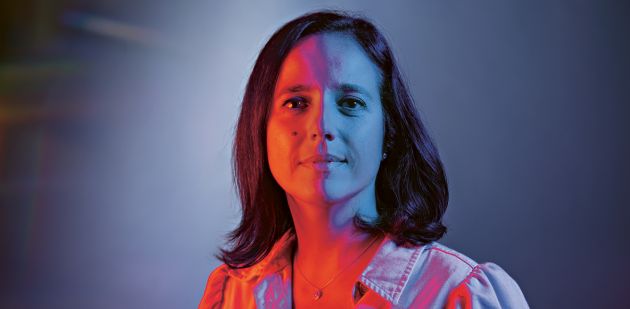Researcher and neurosurgeon Jocelyne Bloch looks back on her career. Her philosophy: working in a multidisciplinary team is the key to any ambitious project.

Jocelyne Bloch / No, I don’t have many doctors in my family. Just a cousin, but he wasn’t the one who influenced me. I chose this path out of personal interest. Even as a young girl, I was interested in people. I hated the idea of disease and that people could die. I was very sensitive to that as a child. But it wasn’t until my teens that I wanted to study medicine, and I was fascinated with the human body. In fact, if I’d thought of the idea earlier, I would have become a scientist. I studied literature and modern languages for my A levels. Studying medicine was not easy because of that.
jb / Many students choose their specialisation during the internships after medical school. I had already made my choice in the third year of medical school when I approached neurosurgery for the first time. That was probably because the brain is the organ that differentiates us from other living beings. And also because much remains unknown about how the brain functions. There’s still so much to learn! I considered specialising in neurology, or even psychiatry. I did several internships in neurosurgery, in different places, to be sure of my decision. And each experience confirmed that I was making the right choice. When I started working, even my first position was in neurosurgery.
jb / No, senior positions in neurosurgery are hard to come by for anyone. At this level, it’s almost easier for a woman to take part in interesting projects to promote equal opportunity. I’m in high demand. Personally, I think we should let nature run its course and let things evolve over time. People should be hired for their ability, not their gender.
jb / I discovered and appreciated neurosurgery through Nicolas de Tribolet, who was chief of the Service of Neurosurgery at Lausanne University Hospital (CHUV) at the very beginning of my career. Then there was Jean-Guy Villemure, who taught me about functional neurosurgery. And in the field of research, I learned a lot from Patrick Aebischer in the laboratory where I worked for two years. He opened my eyes to the translational research aspects. I consider these people as mentors, and I needed them. The fewer mentors you have, the better. But peers can also influence you. Clearly, I found that with Grégoire Courtine, who is sort of my current “peer mentor”!
jb / It’s true that I do a lot of things, but a transition took place about 10 years ago: I’m now in charge of several projects, so I’m surrounded by many people who I can delegate tasks to. My role involves a lot of supervision. In my opinion, a good leader is someone who makes the right decisions, who chooses the right direction, who manages to work with the best people to achieve the project’s goals. I have a lot of work to do, but I almost always manage to keep a cool head by organising my life well. Even though my days are often intense, I consider myself lucky to work in a field that I’m passionate about and that is basically also a leisure activity for me. In my free time, cooking relaxes me, along with evenings with friends.
jb / In general, collaborations depend on opportunities. It’s all about having the same idea at the same time. I’ve been working with Jean-François Brunet for a long time. At the time we met, he had developed autologous cells. And then with Grégoire Courtine, we met when he had already made good progress in his research on motor function in paralysed animals and was ready to move on to humans. When he arrived in Switzerland, he started working in Zurich. If he had not come to the Lausanne region to approach EPFL, we would probably have never worked together!
jb / I think it depends on individual personality and the purpose of the research. Some researchers work their entire career with a small team on a chemical and discover fascinating things. Neurosurgery is a discipline that requires the crossing of skills in order to move forward.
Born in Geneva, Jocelyne Bloch grew up in Vevey, where she completed her schooling before attending the University of Lausanne to study medicine. She obtained her degree in medicine in 1994 and her specialisation in neurosurgery in 2002. She had her children in 2003 and 2005. She always lived her family life in parallel to her research and clinical work.